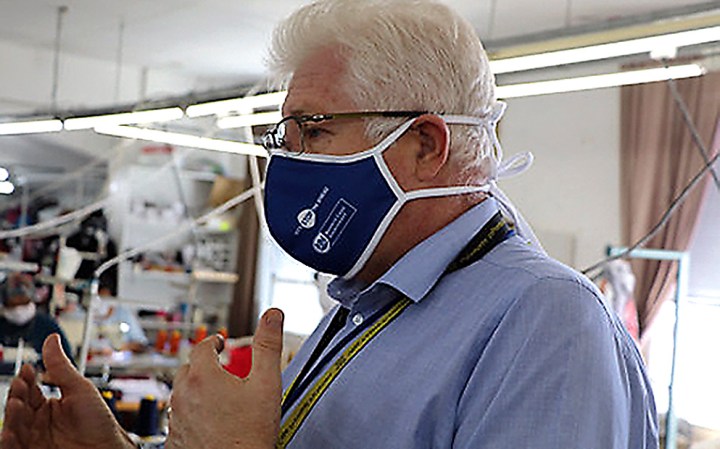QUARANTINE
Western Cape concerned about ‘high rejection rates’ for isolation facilities

As Covid-19 enters its peak in the Western Cape, the provincial government is concerned that people who cannot quarantine or isolate at home are refusing to go to government facilities.
The Western Cape is experiencing “high rejection rates” for assisted quarantine and isolation at its facilities.
“Seventy percent or more are refusing,” said Western Cape Health MEC, Nomafrench Mbombo during a press briefing on the status of quarantine and isolation in the province.
“It’s very daunting for somebody to leave the family behind, you can understand the issue of separation,” said Mbombo.
There are 42 active quarantine and isolation facilities in the province – 27 are in privately-owned buildings while 15 are on government property.
The overall bed capacity is 4,766. Currently, 1,006 beds are occupied while 3,760 are available.
Facilities are open in five of the six district municipalities – the Central Karoo District is excluded. The City of Cape Town has the highest number of beds, but Overberg has the highest occupancy rate at nearly 38%.
The service is reserved for those who cannot quarantine or isolate at home.
“All symptomatic clients not requiring hospitalisation are currently offered assisted quarantine (with or without testing). Once this facility is filled, we will move on to activate other quarantine facilities,” said Shane Hinley, Component Head for immovable asset management for the Western Cape Department of Transport and Public Works.
Isolation is offered for people who test positive for Covid-19. Those with severe symptoms as well as those at “high risk for Covid-19 morbidity and mortality” are assessed for the need for hospitalisation.
Hinley identified common themes regarding why assisted quarantine and isolation is often rejected, such as fears around stigmatisation and limitations to freedom of movement.
“Can I smoke, can I drink alcohol, can I come and go as I please?”
Under MEC Bonginkosi Madikizela, the Department of Transport and Public Works has introduced the Red Dot taxi service (operated by the minibus taxi industry) to transport individuals to and from quarantine and isolation facilities, as well as transport healthcare workers.
A fleet of 150 vehicles are each fitted with a protective screen and tracker. Vehicles are meant to carry only a half-load of passengers.
Regarding stigmatisation, it was raised during the question and answer portion of the briefing that when people are fetched from their homes, the process is often not discrete and signals to neighbours and the community that one is Covid-19 positive.
So far the Western Cape has recorded 55,162 cases, close to 50% of the national total. According to figures from the Western Cape government, 1,565 people have died from the disease, while the province has seen 38,433 recoveries.
The testing backlog at the National Health Laboratory Service (NHLS) in the Western Cape has now been cleared, said Saadiq Kariem, Chief of Operations at the provincial Department of Health.
In light of this, Premier Alan Winde said the province will review its testing strategy which is currently focused on people aged 55 years old and above, residents in care homes who develop symptoms and anyone with comorbidities.
Winde said Covid-19 is now entering its “peak” in the Western Cape, which could last three to four weeks based on initial modelling.
“But we will continue to track the data and recalibrate or review the model,” said Winde.
Meanwhile, there is a “steady increase in pressure on all services”, Kariem said.
“More than 60 Covid-associated deaths a day now consistently reported or estimated,” said Kariem. “Over 1,700 hospital beds are occupied by patients with confirmed Covid diagnoses, including 250 in ICU.”
At a briefing to the NCOP earlier this week, it emerged that reluctance to quarantine was a drawback in tackling the coronavirus pandemic. DM


















